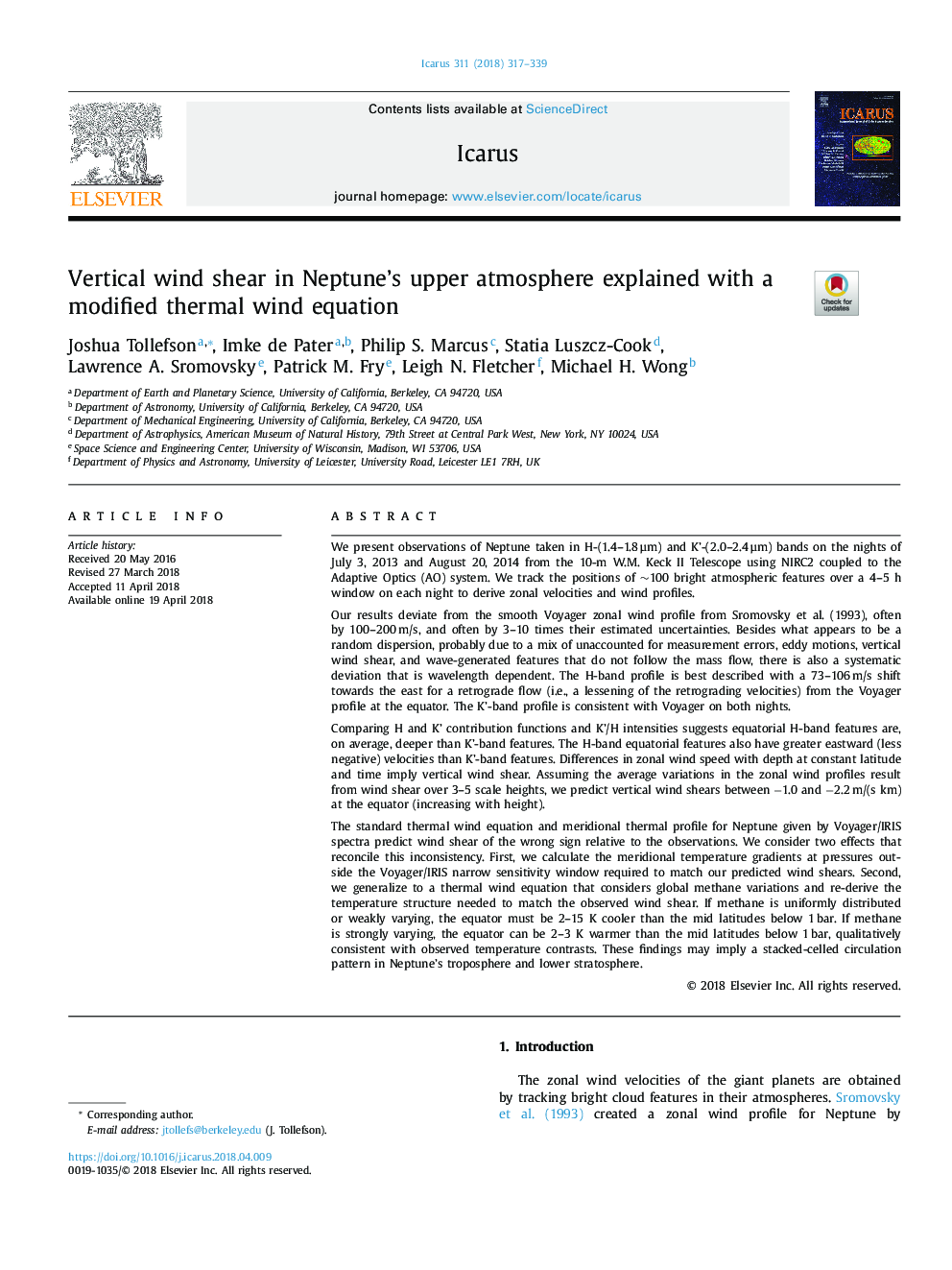| Article ID | Journal | Published Year | Pages | File Type |
|---|---|---|---|---|
| 8134002 | Icarus | 2018 | 23 Pages |
Abstract
The standard thermal wind equation and meridional thermal profile for Neptune given by Voyager/IRIS spectra predict wind shear of the wrong sign relative to the observations. We consider two effects that reconcile this inconsistency. First, we calculate the meridional temperature gradients at pressures outside the Voyager/IRIS narrow sensitivity window required to match our predicted wind shears. Second, we generalize to a thermal wind equation that considers global methane variations and re-derive the temperature structure needed to match the observed wind shear. If methane is uniformly distributed or weakly varying, the equator must be 2-15 K cooler than the mid latitudes below 1â¯bar. If methane is strongly varying, the equator can be 2-3 K warmer than the mid latitudes below 1â¯bar, qualitatively consistent with observed temperature contrasts. These findings may imply a stacked-celled circulation pattern in Neptune's troposphere and lower stratosphere.
Related Topics
Physical Sciences and Engineering
Earth and Planetary Sciences
Space and Planetary Science
Authors
Joshua Tollefson, Imke de Pater, Philip S. Marcus, Statia Luszcz-Cook, Lawrence A. Sromovsky, Patrick M. Fry, Leigh N. Fletcher, Michael H. Wong,
